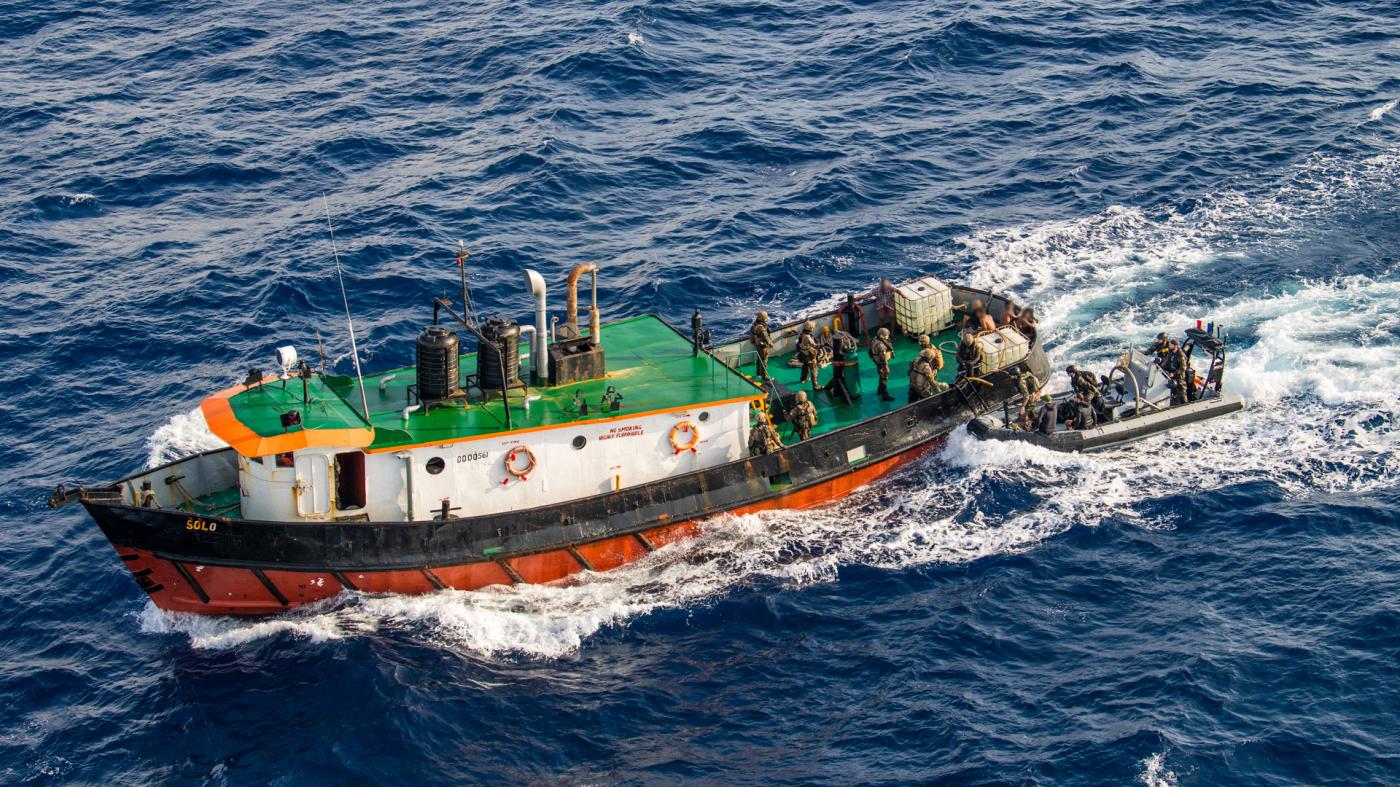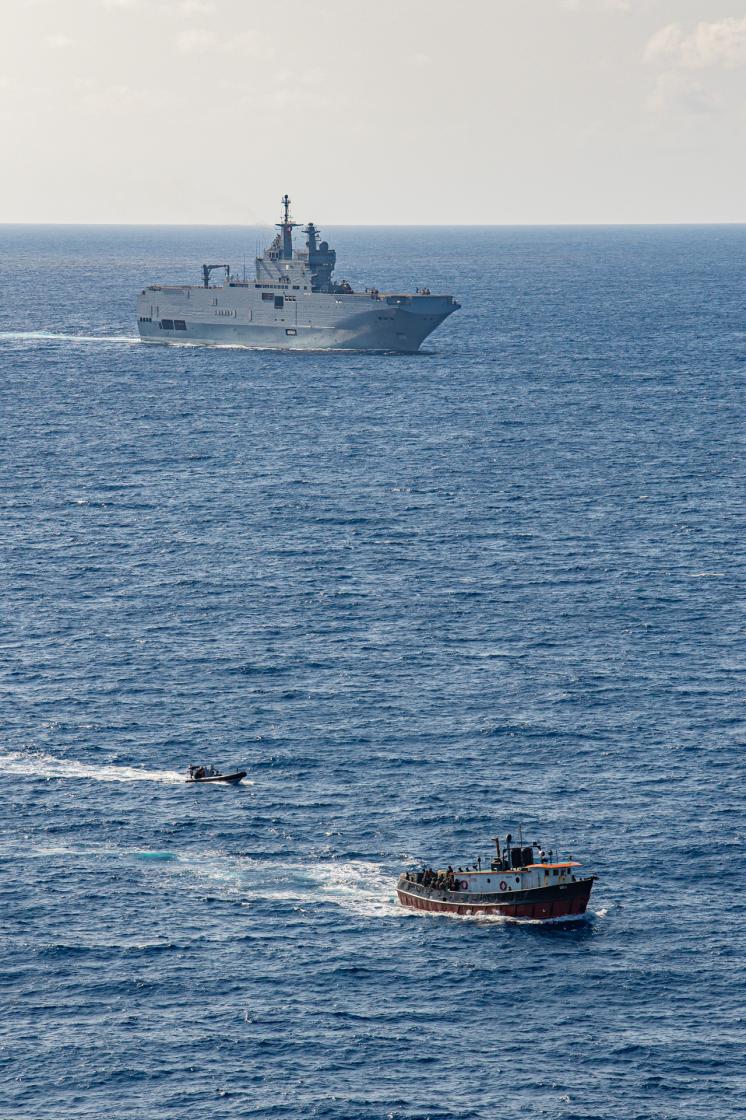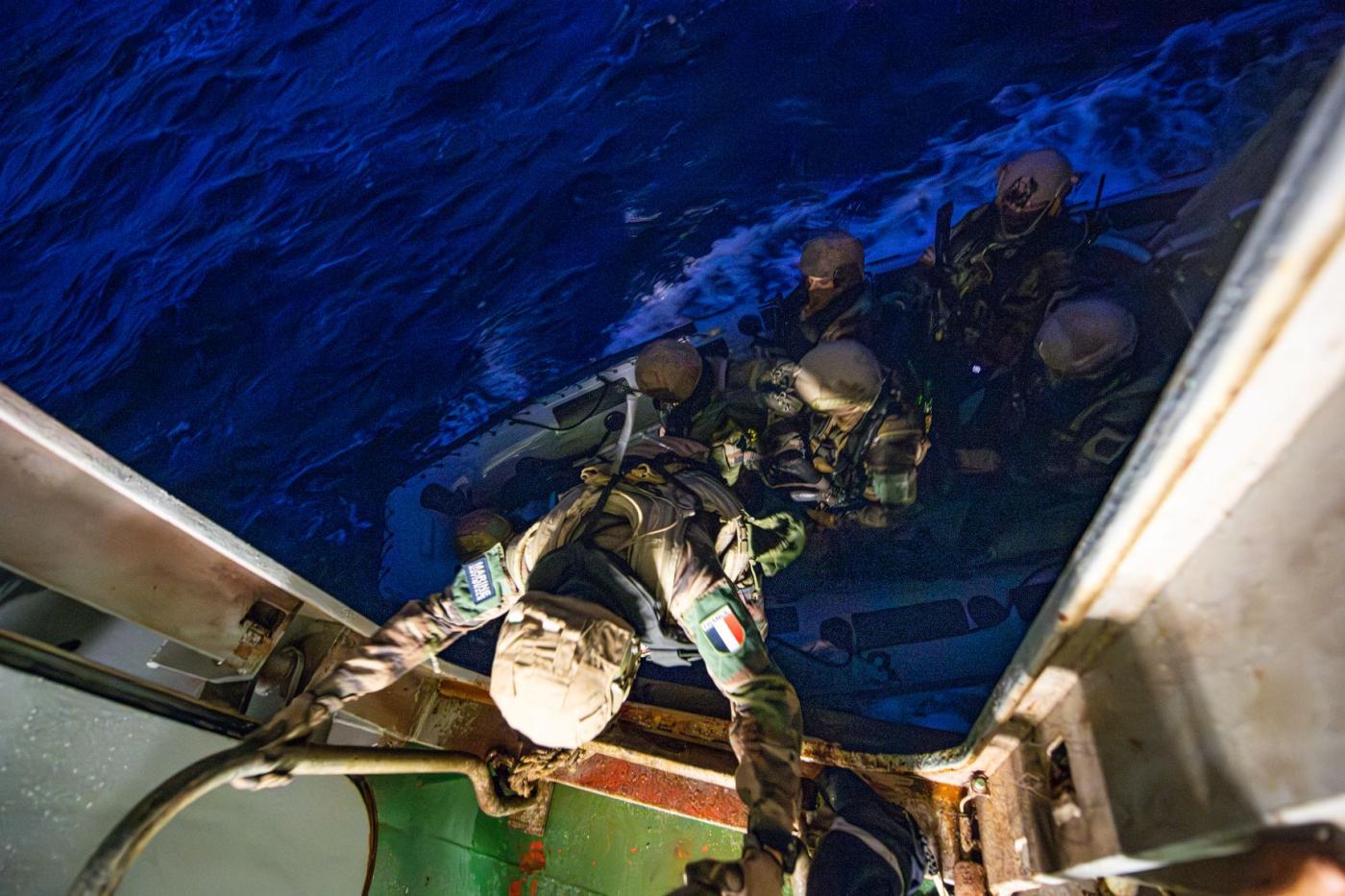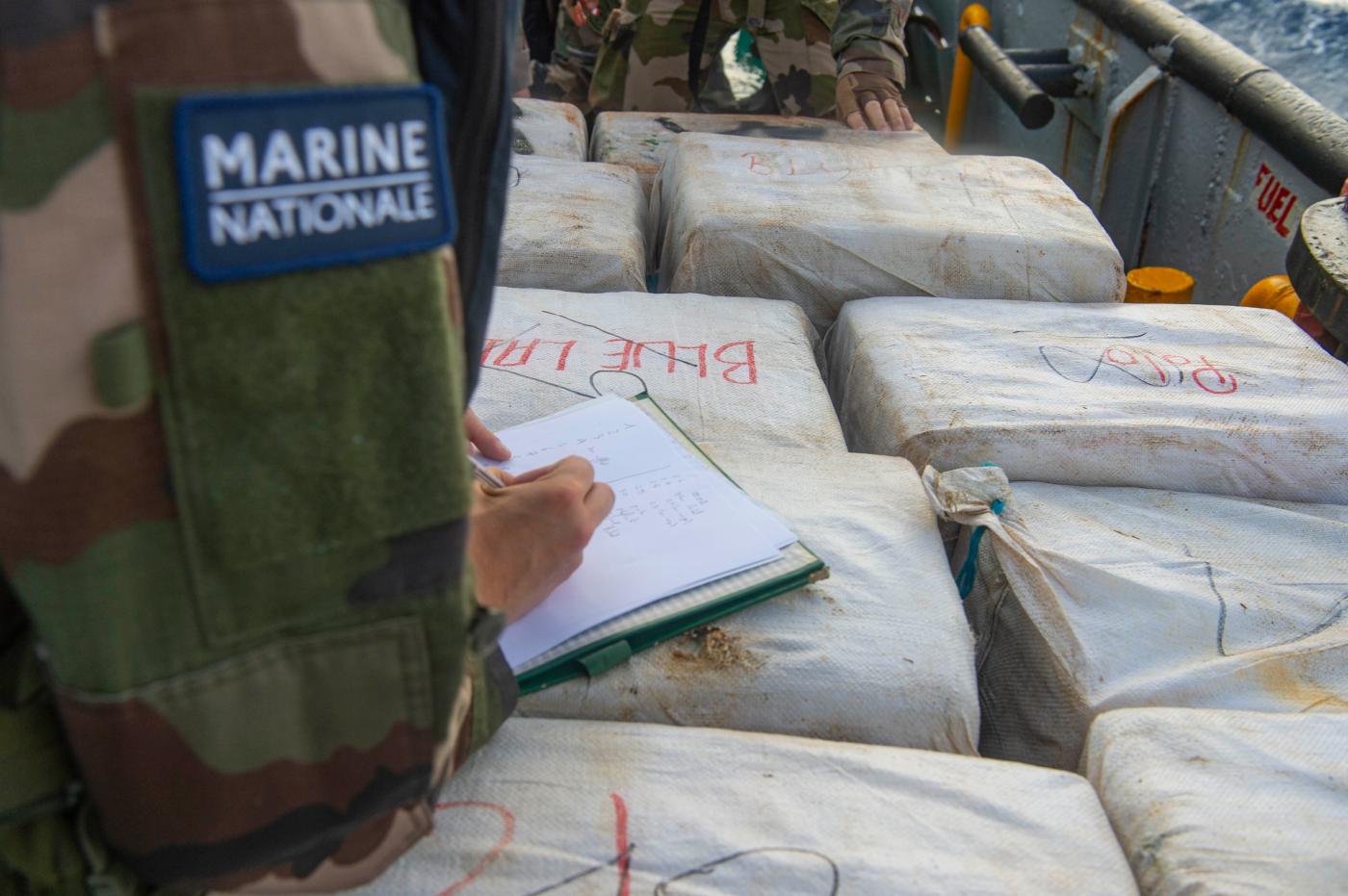French navy seizes record-breaking cocaine shipment off African coast
On Saturday, March 15, 2025, acting on orders from the Atlantic maritime prefect and the public prosecutor in Brest, a French navy vessel intercepted a staggering 6,386 kg of cocaine from a fishing vessel operating off the coast of Africa. This operation, a result of extensive international maritime and intelligence collaboration, underscores the effectiveness of joint efforts in combating drug trafficking.
navy worldwide news16 march 2025 | 19:33 | Source: Gazeta Morska | Prepared by: Kamil Kusier | Print

fot. Marine nationale
Scale of the operation and global coordination
The French anti-narcotics office (OFAST) initiated the intervention based on intelligence provided by the Maritime Analysis and Operations Centre – Narcotics (MAOC-N), the UK's National Crime Agency (NCA), and the US Drug Enforcement Administration (DEA). The French navy, operating from a helicopter carrier, executed the operation with support from two helicopters — Dauphin and Cougar — and a drone. The intercepted fishing vessel, approximately 20 meters long and registered in Guyana, was boarded with the flag state’s consent under article 17 of the United Nations Convention Against Illicit Traffic in Narcotic Drugs and Psychotropic Substances.
Results: seizure and destruction of the cargo
The French team secured 6,386 kg of cocaine onboard, with an estimated street value of nearly €371 million. The drugs were transferred to the French naval vessel and subsequently destroyed under the directive of the Brest public prosecutor. This operation highlights the strength of international cooperation, delivering a significant blow to organized crime networks.
France’s naval presence in the region
The French navy maintains a consistent presence in West and Central African waters, safeguarding vital trade and maritime routes. One or two French naval vessels, supported by a maritime patrol aircraft, are almost permanently deployed in the Gulf of Guinea under operation Corymbe. This mission contributes to the broader strategy of maritime security architecture developed through the Yaoundé process and supports the European Union’s coordinated maritime presence initiative.
Key takeaways for the maritime sector
The success of this operation reinforces the importance of international collaboration in protecting maritime routes. The maritime sector — including European ports and shipowners — must remain vigilant and adaptable to evolving security threats like smuggling. France’s operation serves as a powerful reminder that robust, intelligence-driven alliances are pivotal in reducing illegal activities at sea.
Daily Mare will continue to monitor developments in global maritime security, focusing on efforts to ensure safer, more stable sea transport routes.
Buy us a coffee, and we’ll invest in great maritime journalism! Support Gazeta Morska and help us sail forward – click here!
Kamil Kusier
redaktor naczelny
gallery





comments
Add the first comment
see also
NATO’s persistent naval presence in the Arctic and the northern Atlantic strengthens sea lane security
Poland launches second DELFIN SIGINT ship ORP Henryk Zygalski in Gdańsk
ORP Henryk Zygalski launched at Remontowa Shipbuilding under Saab Kockums program
ORP Drużno returns to service following intermediate dock repair
Gdynia honors top athletes of 2025 and century-old sports legends
COBI & Naval Museum in Gdynia launch strategic partnership — WWII naval history at the heart of new product line
Ustka a NATO opportunity? What a port on the border of two regions could change
Polish Naval Academy students advance unmanned maritime systems
Medical evacuation from offshore installation in the Baltic Sea. First naval SAR mission of 2026
Russian escort and U.S. oil chase: a new front in the North Atlantic. Implications for shipping and energy markets
ADVERTISEMENT
ADVERTISEMENT